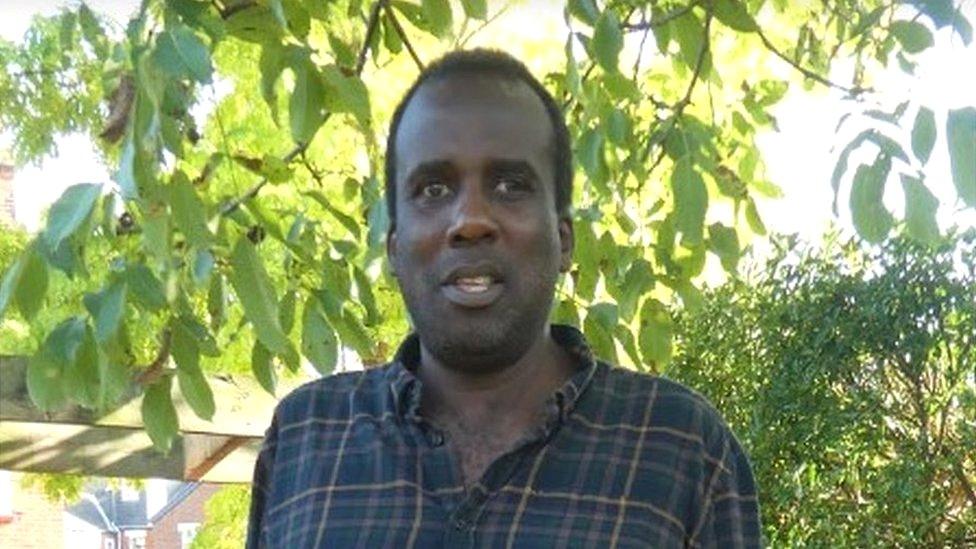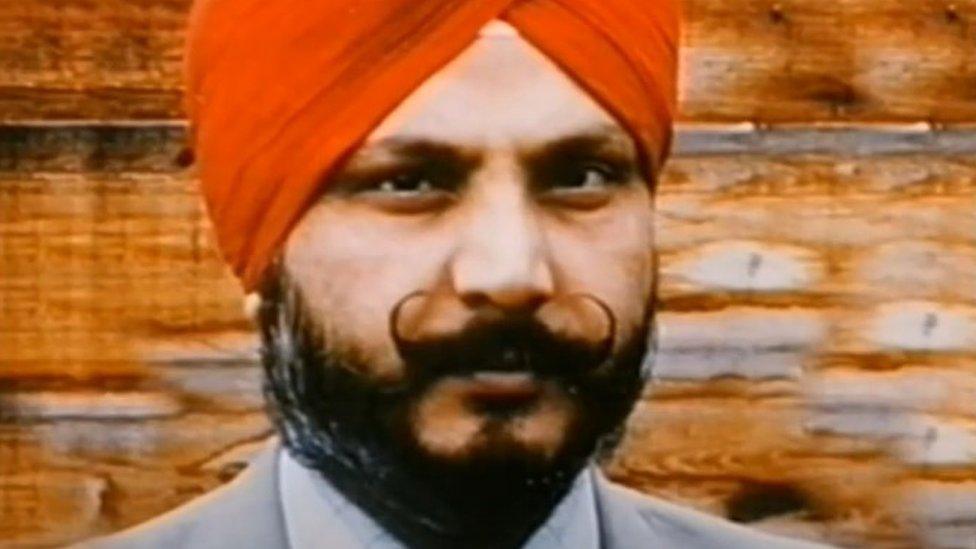Oliver Campbell case: New appeal over 1990 murder conviction
- Published

Oliver Campbell welcomed the application to the Criminal Cases Review Commission
A man with severe learning disabilities convicted of murder nearly 30 years ago hopes a new appeal will clear his name.
Oliver Campbell, 50, who lives near Woodbridge, Suffolk, was jailed for the murder of shopkeeper Baldev Hoondle, 42, in Hackney, east London, in 1990.
Campbell, who suffered a brain injury when he was eight months old, has always protested his innocence.
He welcomed the appeal to the Criminal Cases Review Commission (CCRC). The Met Police said it did not wish to comment.
Campbell, who was released from prison on life licence in 2002, said: "Since 1990 I have been trying to clear my name. This has gone on for a very long time, a whole lot of my life.
"I am just fighting this miscarriage of justice and trying to clear my name every day."

Shopkeeper Baldev Hoondle, 42, in Hackney, London, was murdered in his off-licence in July 1990
Campbell's case featured in a 2002 edition of the BBC television documentary Rough Justice, which pointed out a number of concerns about the case.
It highlighted the fact witnesses described two men who were about 5ft 10in (1.77m) or 5ft 11in (1.8m) in height as having been involved in the fatal robbery, when Campbell was 6ft 3in (1.9m) tall.
The programme also spoke to Eric Samuel, who admitted being with the man who shot Mr Hoondle in the botched robbery of an off-licence.
Samuel was recorded saying Campbell was innocent.
'Incredibly vulnerable'
After Rough Justice was broadcast an application was made to the CCRC, but it decided there was no case to appeal over the outcome of the case.
In 2019 the then MP for Ipswich Sandy Martin raised the case in the House of Commons and the CCRC has agreed to take another look at the case.
Campbell said: "I have been used as a scapegoat.
"The case has gone on longer than the Birmingham Six. They got cleared after 18 years. It's the 30 year anniversary [of my conviction} in November."
Campbell's solicitor Glyn Maddocks, from Gabb and Co, said his client's confession "was a nonsense".
Mr Maddocks said Campbell told police he had hired a gun but could not say where from and said he had practiced firing the gun in a wood but could not say where.
"How they could not have spotted that he was incredibly vulnerable, I do not know," said Mr Maddocks.
The Metropolitan Police and Ministry of Justice said they did not wish to comment.